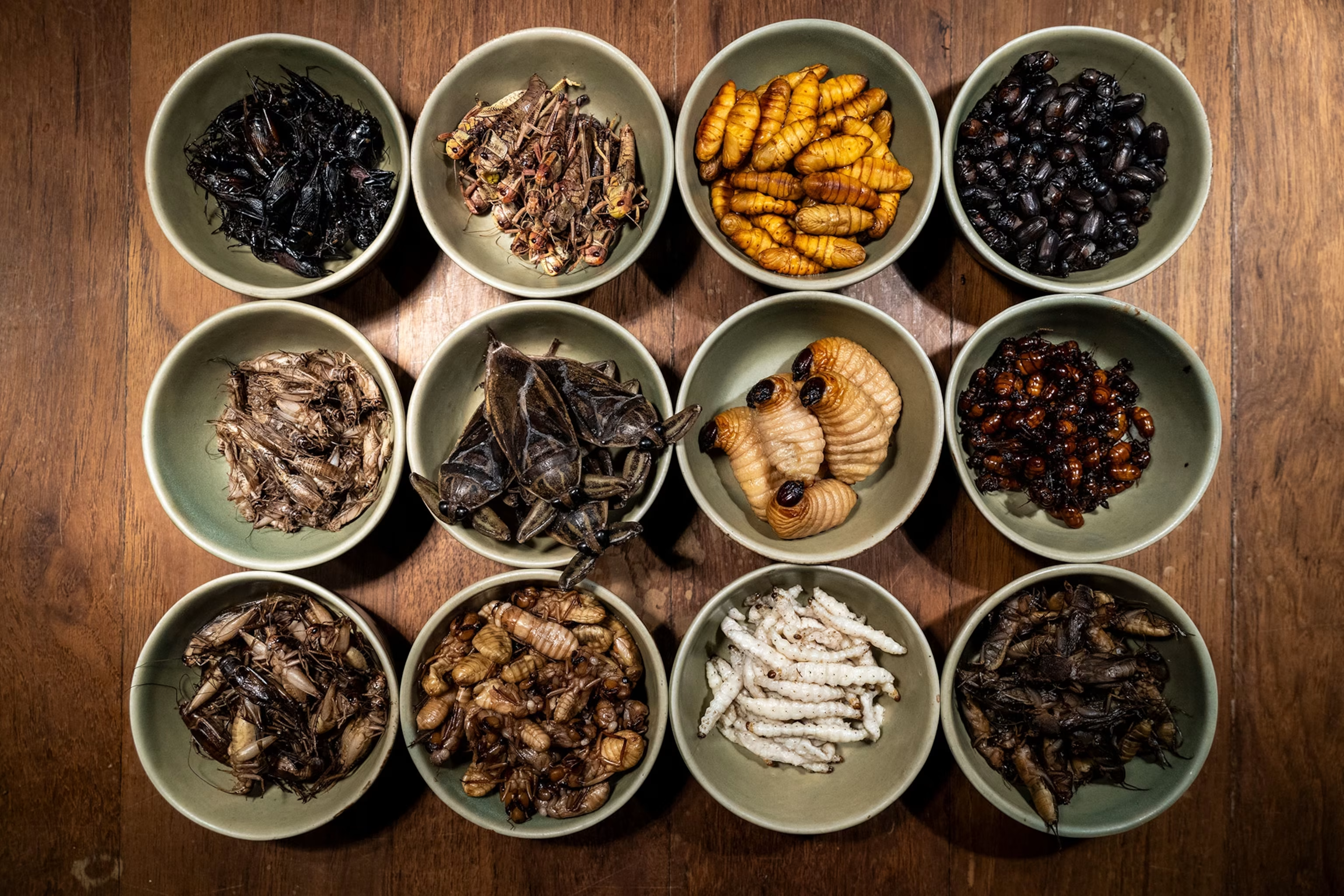No products in the cart.
Learn how edible insect farming in Laos offers a sustainable protein source, blending tradition with modern food innovation.

For centuries, insects have been part of traditional Lao diets, valued for their nutrition, taste, and availability. Crickets, grasshoppers, silkworms, and bamboo worms are common delicacies, often sold in village markets and night bazaars. Today, with global discussions on sustainable protein sources and food security, Laos has an opportunity to transform its traditional insect consumption into a modern industry: edible insect farming. This sector can create jobs, reduce environmental impact, and provide a climate-friendly solution to global protein demands.
Nutritional and Environmental Benefits of Edible Insects
High Protein Content: Insects contain up to 60–70% protein, surpassing many meats.
Rich in Micronutrients: Provide iron, zinc, and essential amino acids.
Low Environmental Impact: Farming insects requires less land, water, and feed.
Fast Growth: Insects reproduce quickly, ensuring a steady food supply.
Waste Utilization: Many insects can be raised on organic food waste, reducing landfill pressure.
Current Trends in Laos
Village Farming: Small-scale cricket farms already exist in rural provinces.
Urban Demand: Growing popularity of insect snacks in night markets.
Export Potential: Processed insect protein powders could attract international buyers.
Innovation: Restaurants in Vientiane experiment with insect-based dishes for tourists.
Challenges in Insect Farming
Lack of large-scale infrastructure and investment.
Need for food safety standards and regulations.
Cultural hesitance among younger urban populations.
Competition from Thailand and Vietnam, where insect farming is more advanced.
Example in Laos
In Savannakhet Province, families raise crickets in simple containers, selling them as snacks in local markets and to restaurants in nearby towns.
Conclusion
Edible insect farming has the potential to become a sustainable protein industry in Laos. By blending traditional diets with modern innovation, the country can secure food security and participate in global sustainable food trends.
About CITS Laos
CITS Laos partners with food innovators, farmers, and sustainability experts to promote edible insect farming. We create bilingual food platforms, run eco-friendly marketing campaigns, and develop SEO strategies to highlight Lao insect cuisine globally. By combining tradition with innovation, CITS Laos ensures edible insect farming becomes a sustainable pathway to nutrition and economic growth.